Hey kids and cowboys, it’s time for the requisite annual list: Cinemastance’s Top Nine Films of 2011.
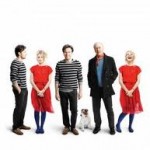
“Beginners”- “Beginners” is an actor’s showcase. The film uses a narrative that slips and glides through time to paint us a vivid picture of the life of a sad man named Oliver (Ewan McGregor). It is the 1970s and we are shown Oliver as a boy, alone with his melancholy mother (Mary Page Keller) mixed with footage of Oliver dealing with his father, Hal’s (Christopher Plummer) death in 2003. Then we skip a few months as we see Oliver meet a most perfect woman named Anna (Melanie Laurent) and experience their budding romance inter cut with Hal professing his homosexuality to his stunned son a few years prior. As complex as the device is, “Beginners” is effortless.
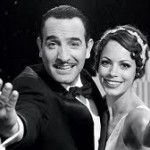
“The Artist”- “The Artist” achieves the remarkable. It is a story relayed in a format as old as cinema itself: The silent film. Yet the film is a revelation, full of life and as refreshing as any movie you will see this year. Something special happens to the mind as you watch a silent film. You are asked for fill in the blanks, to analyze more than we are used to doing. In fact, the big, dumb summer movies of this generation, (I’m talking you Michael Bay) we are more often asking you to not think at all. A silent film demands more interaction, more focus. A stronger relationship between the story and the viewer can be developed because of this. As a result, “The Artist” feels like a dream you have lived through as opposed to something lifeless you merely watched.
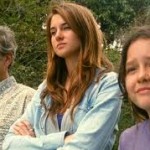
“The Descendents”- This is director Alexander Payne’s first film since 2004’s stellar “Sideways”. With “The Descendents” Payne has made an entire movie about reaction: not just Clooney’s pivotal one when he first hears that his wife will be lost or how he deals with the adultery but all of the major character’s reactions to the situation. The kid’s responses are the most gut wrenching while the wife’s father, Grandpa Scott (Robert Forster) lashes out to the revelation. Payne has done this before: “Sideways” best scene involves Paul Giamatti listening to Virginia Madsen wax poetic about the life inside a bottle of wine. You can see him fall in love with her. Better yet, you can feel it.
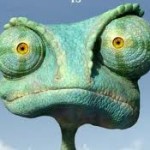
“Rango”- With films like Mouse Hunt and the Pirates of the Caribbean Trilogy on his resume, Verbinski has effectively been creating live-action cartoons all of his career. Rango is a natural fit and it is pretty obvious that he relishing the visual freedoms that animation can bring. Verbinski employed a new way to pre-visualize his movie, filming the entire thing on a small sound studio with the actors actually acting out the scenes. This gives the animators a real-life, moving storyboard to draw the performances from and the results are apparent. Rango has a unique, organic quality that is filled with nuance and superb comedic timing that couldn’t be achieved any other way.

“Crazy Stupid Love”- Illustrating that love is a complex, twisted, soul-fueling mess; “Crazy, Stupid, Love” hits the subject from many angles. From the innocence of puppy love to the raw lust of a one night stand. A blossoming romance mixed with a deteriorating marriage. “Crazy, Stupid, Love” fixes itself on connections that are heartwarming, gut wrenching and, in the hands of a most magnificent cast, funny as hell.
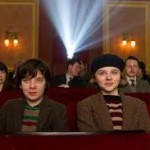
“Hugo”- Martin Scorsese is a hardcore cinephile whose knowledge regarding cinema’s past is exhaustive. “Hugo” is a film that illustrates this passion more than any other project he has made in the past. Early parts of the film are told in pantomime as Hugo watches people live their lives through faces of the grand clocks at the station. Many of the relationships features a romantic innocence that is best described as old fashioned. This is Scorsese drawing heavily from the films he loves and the affection shows.
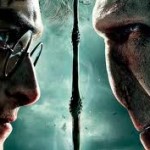
“Harry Potter”- By splitting “Deathly Hallows” into two segments, Yates gets the rare opportunity of presenting a film that is nearly all climax- all action. The pace is breakneck and exhilarating. Sometimes this works to a disadvantage, skimming over moments that could have had more resonance had more time been taken. These elements were presented with great care in the novels and some of it is lost in the chaos. The Harry Potter Universe is stunning-instantly classic- and the films have done a commendable job at presenting this universe. The quality that the filmmakers involved in the project have been able to maintain throughout 8 films over a span of 11 years is worth celebrating.
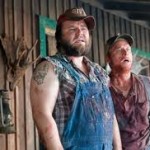
“Tucker and Dale”- The film is a sort of Horror Genre spin on “Rosencrantz and Guildenstern are Dead” which took “Hamlet” and turned it into absurdist comedy by telling the familiar tale from the angle of a couple of peripheral characters that usually roam around in the background. While “TDv.E” never touches on the existential elements of that play (in fact it more accurately warps into a romantic comedy), it does offer us something exciting and fresh by flipping perspectives. The result is a parody in the vein of “Young Frankenstein” that riffs on the trappings of the genre while creating a stand alone film that is more like a better looking (and smarter) cousin to “Wrong Turn,” “The Hills have Eyes” or the weak remake of “The Texas Chainsaw Massacre”.
“The Muppets”- The best compliment that can be given to “The Muppets” is that it feels like a Muppet movie. The cheerful songs, the witticism and beloved characters are all here in this whimsical revival. Kermit the Frog and crew are back and Jim would no doubt be proud. First time director James Bobin is to blame for capturing the marvelous madness of the Muppets. With Bobin, Segal and Stoller you see current funnymen who have been heavily influenced by the Muppets (this would explain the Dracula puppet show that closes Segal and Stoller’s “Forgetting Sarah Marshall”). As soon as they had some clout in Hollywood, they ran to this project and have given us a real, true labor of love.



